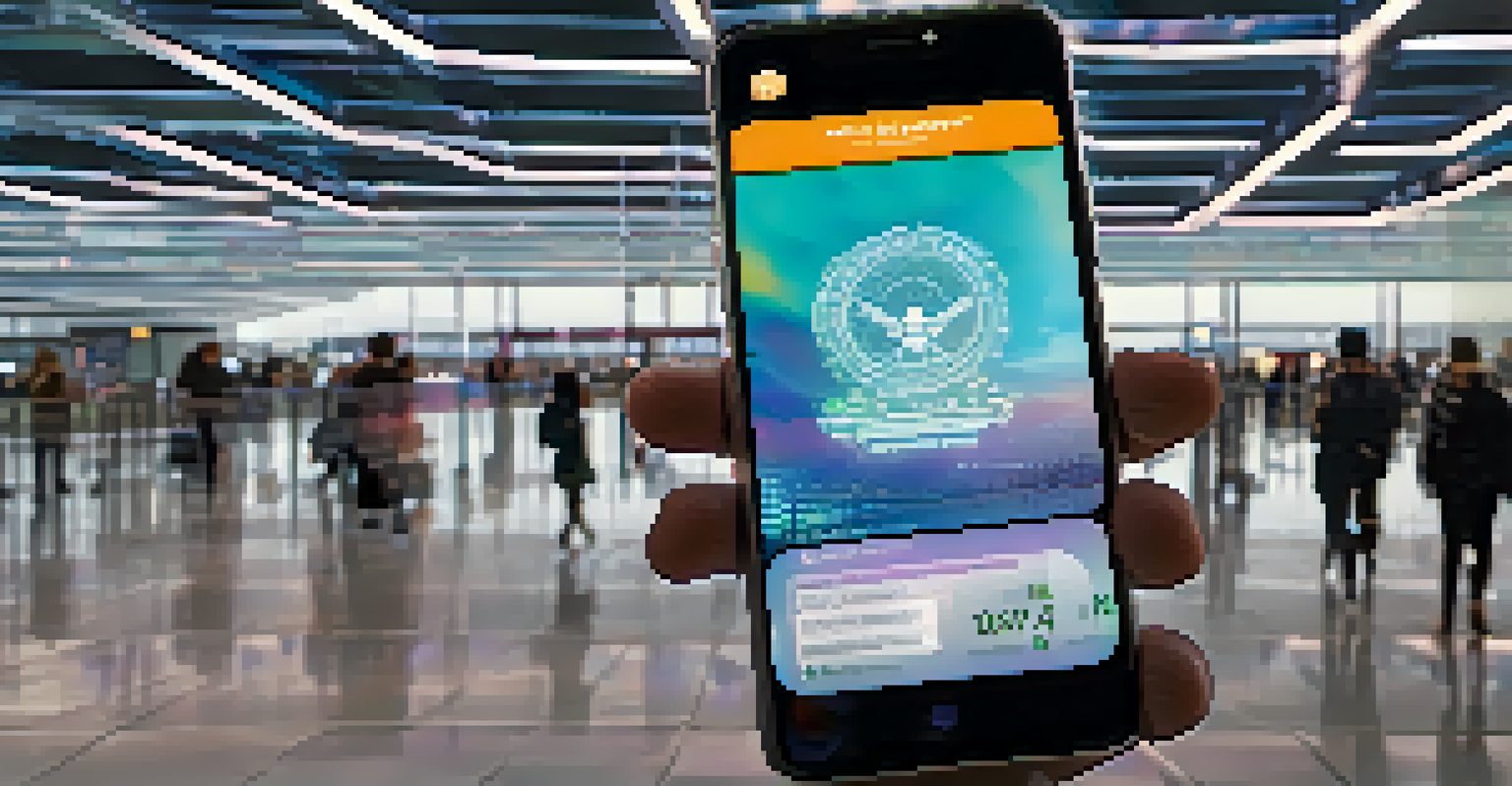NFTs as Digital Identity: Revolutionizing Verification Methods

Understanding NFTs and Their Role in Digital Identity
Non-fungible tokens, or NFTs, are unique digital assets stored on a blockchain. Unlike cryptocurrencies, which are interchangeable, each NFT has distinct properties that make it one-of-a-kind. This uniqueness is crucial when considering digital identity, as it provides a verifiable way to represent individuals or entities online.
NFTs are the digital assets of the future, enabling us to establish secure identities and ownership in the online world.
With the rise of digital interactions, establishing identity has never been more important. Traditional methods, like passwords or government IDs, can be vulnerable to theft or forgery. NFTs offer a fresh approach, providing a secure and decentralized way to verify identity, enhancing trust in various online transactions.
Think of NFTs as digital badges that signify ownership or authenticity. Just as a physical badge can identify a person at an event, NFTs can serve as irrefutable proof of identity in the digital realm, paving the way for safer online experiences.
The Benefits of NFTs for Identity Verification
Using NFTs for identity verification presents several advantages, particularly in security and privacy. Since NFTs are built on blockchain technology, they offer a high level of cryptographic security that is difficult to breach. This means individuals can have greater confidence that their identity is protected from malicious actors.

Moreover, NFTs allow for greater control over personal data. Users can choose to share specific information while keeping other details private, which is a significant shift from traditional identity systems often requiring extensive personal data. This selective sharing fosters a more transparent online environment.
NFTs Enhance Digital Identity Security
NFTs provide a secure, decentralized method for verifying digital identities, reducing the risk of theft and fraud.
Imagine a future where you can prove your identity without exposing unnecessary personal information—like showing a badge that confirms you are an adult without revealing your exact age. NFTs enable this kind of privacy-centric verification, aligning with growing concerns about data security.
Real-World Applications of NFTs in Identity Verification
NFTs are already being used in various sectors for identity verification. For instance, in education, institutions can issue diplomas as NFTs, allowing graduates to prove their credentials easily and securely to potential employers. This eliminates the need for lengthy verification processes that can often delay hiring.
The rise of NFTs represents a paradigm shift in how we think about identity, ownership, and privacy in the digital age.
The entertainment industry is also exploring NFT-based identities. Artists can create unique digital profiles that verify their work and establish authenticity, helping to combat the pervasive issue of art theft in the digital space. This not only protects the artist's rights but also assures buyers of the legitimacy of their purchases.
Consider the potential in the travel industry too. Imagine having an NFT that serves as your digital passport, containing all necessary information for border control without the need for paper documents. This could streamline travel experiences, making them faster and more secure.
Challenges Facing NFT-Based Identity Solutions
Despite the promise of NFTs in identity verification, several challenges remain. One significant hurdle is the environmental impact associated with blockchain technology, especially on proof-of-work blockchains. As concerns about sustainability grow, solutions must be sought to make NFT systems more eco-friendly.
Additionally, there's the issue of accessibility. Not everyone is familiar with NFTs or blockchain technology, which can create barriers for those who may benefit from these advancements. Education and user-friendly platforms will be essential to ensure widespread adoption and understanding.
Privacy Control with NFTs
Users can selectively share personal information through NFTs, protecting their privacy while proving their identity.
Imagine a world where only tech-savvy individuals can reap the benefits of NFT identity verification. This could lead to a digital divide, where some have secure identities while others remain vulnerable. Addressing these challenges is crucial for the success of NFTs in this space.
The Future of NFTs and Digital Identity Verification
Looking ahead, the future of NFTs in digital identity verification is promising but requires careful navigation. As technology evolves, we can expect to see more innovative solutions that integrate NFTs seamlessly into everyday applications. This could lead to a landscape where identity verification is not only secure but also user-friendly.
Furthermore, as governments and organizations begin to recognize the potential of NFTs, we may see regulatory frameworks emerging to support their use in identity verification. This could provide a standardized approach, enhancing trust and encouraging wider adoption across various sectors.
Imagine a scenario where your digital identity can be verified with a simple scan of your NFT on your smartphone, unlocking services ranging from banking to healthcare instantly. This vision could soon become a reality as the technology and its applications continue to develop.
The Role of Community in NFT Identity Solutions
Community plays a vital role in the adoption of NFT-based identity solutions. Engaging users in discussions about the benefits and challenges can foster a sense of ownership and encourage participation in these emerging technologies. The more people understand and feel invested in the process, the more likely they are to embrace it.
Social platforms and forums can act as incubators for ideas and innovations surrounding NFTs and digital identity. By sharing experiences and insights, communities can help refine these solutions to better meet their needs. Collaborative efforts can lead to greater acceptance and understanding of how NFTs can improve identity verification.
Challenges in NFT Adoption
Despite their benefits, issues like environmental impact and accessibility pose challenges to widespread adoption of NFT-based identity solutions.
Think of communities as the architects of this new digital identity landscape. Their collective input can shape the direction of NFT applications, ensuring they align with user needs while addressing concerns about privacy and security.
Conclusion: Embracing NFTs for a Secure Digital Future
In conclusion, NFTs hold immense potential for revolutionizing digital identity verification methods. By offering a secure, decentralized, and user-controlled approach, they can significantly enhance trust in online interactions. As we navigate the challenges and opportunities ahead, embracing these technologies could lead to a more secure digital future.
It's essential for individuals, organizations, and governments to collaborate in exploring the possibilities that NFTs present. By working together, we can create frameworks and solutions that benefit everyone, ensuring that digital identities are protected and easily verified.

Imagine a world where your digital identity is as secure as your physical one, a world where online interactions are trusted and streamlined. With NFTs paving the way, this vision is within reach, heralding a new era of digital identity verification.